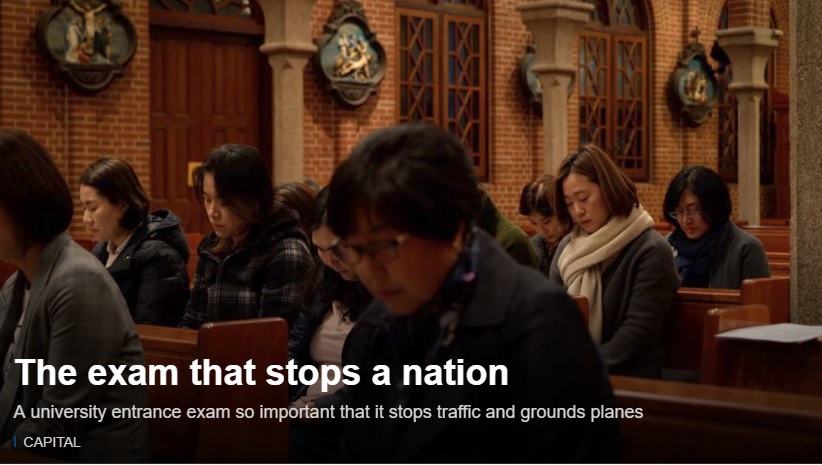
Today, almost 600,000 South Korean students sit the College Scholastic Ability Test, a gruelling, eight-hour set of university entrance exams.
It is difficult to overstate the significance of the CSAT. Similar to other global standardised exams, CSAT scores open doors to prestigious universities. In Korea, however, social pressure and peer judgement not to attend local colleges cause many students to jockey for a few spots in three top universities located in Seoul (known as the ‘SKY’ colleges). Only 1% of students will be admitted.
For a single day, the exam becomes the priority of the entire nation.
Work starts an hour later, enabling students to get to their testing centres on time; planes are grounded during the listening portion so as not to create any extra noise. Younger classmates flood the streets to support upperclassmen. Parents pray together that the many hours of study their children have put in will pay off.
Without top scores, entrance into the highly desired SKY universities is nearly impossible – which leads many students to sit for the CSAT exams multiple times. The test can become a life-consuming endeavour.

